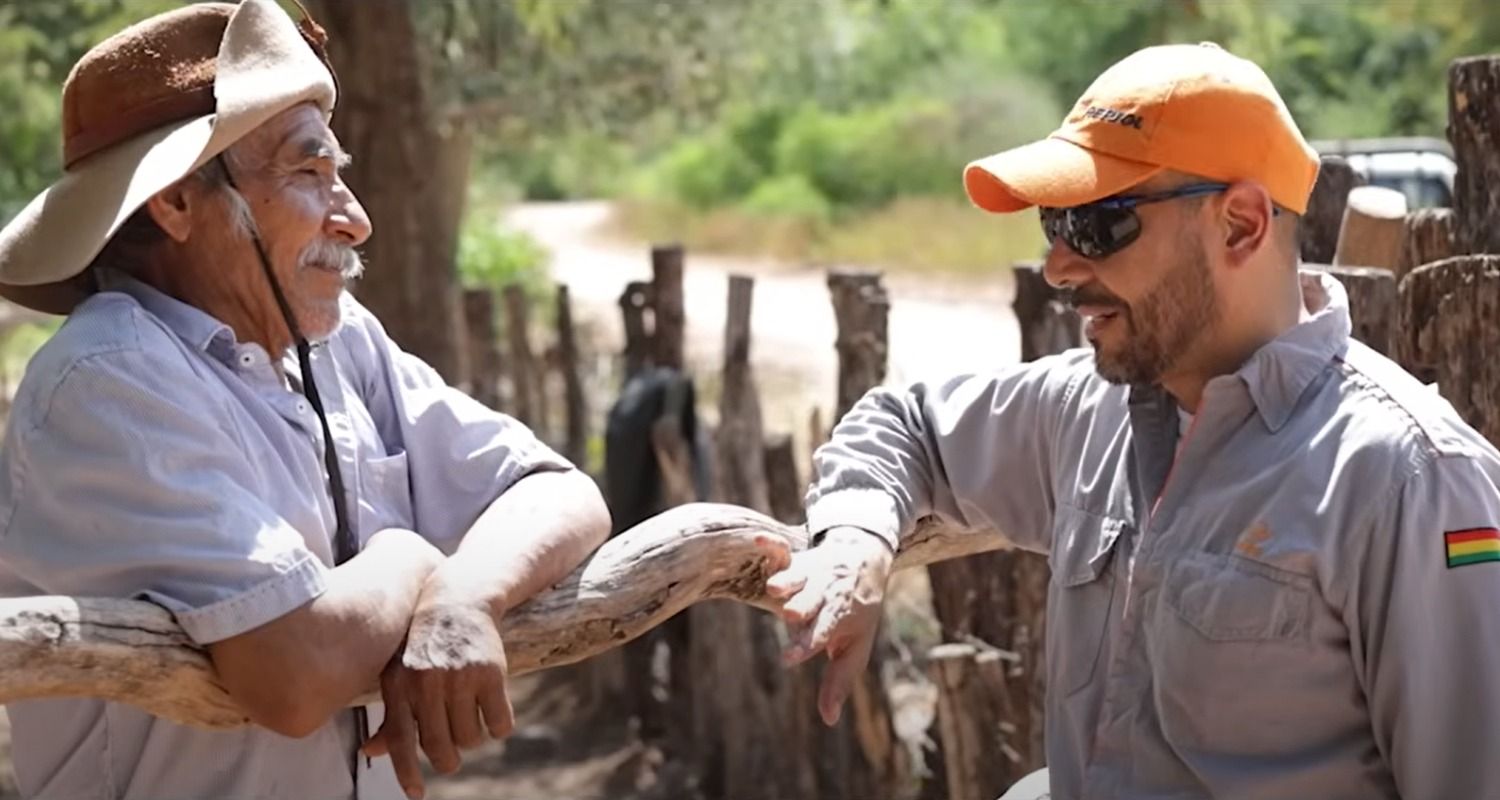Our ongoing search for proactive, transparent, continuous, and participatory dialogue leads us to involve the communities in the areas where we operate from the project's very early stages, keeping in mind the respect for human rights, especially for those most vulnerable groups of people:
- Our grievance mechanisms are readily accessible in our operations to ensure dialogue and fluid communication with the different communities.
- With the aim to strengthen this commitment, we promote compliance with these channels among our suppliers wherever we operate.
- Moreover, in some of our operations, like industrial facilities, there are 24-hour telephone helplines available at our industrial complexes, which have protocols for internally receiving, recording, and dealing with complaints made by a community.
- We respect and take into consideration the work of rights defenders, and in no way do we block or misrepresent communications that take place.
We guarantee participation and representation in dialogue processes
We carefully and proactively identify all rightholders related to the impacts of our operations to incorporate diversity of voices and opinions into the dialogue processes. These processes sometimes involve challenges, but we seek a broad and honest dialogue that helps us identify differences in interpretation or perception of the different stakeholders, in order to optimize the management of human rights impacts and prevent possible discrepancies in the future.
In order to ensure participation and guarantee honest and transparent dialogue, it is necessary to travel to the community or set up dedicated spaces and create a trusting environment for everyone. We provide the means for all rightholders potentially impacted by our operations to access the social management activities promoted by the company, such as impact assessments, training, follow-up of monitoring plans, the social investment projects or the design and access to grievance mechanisms and an effective remediation.
We make technical, financial, or consultancy support available to the communities to ensure proper pre-dialogue training and due representation of all groups, especially taking into account the most vulnerable. For that purpose:
- Sometimes it is necessary for some people to travel to ensure participation and guarantee an honest and transparent dialogue. An example of the support that we can give is to offer free transportation to attend the impact assessment activities or provide access to remediation, as well as training initiatives or to participate in social investment projects.
- Another common practice, which mainly affects women's access to participation, is the provision of a temporary childcare service for the care of dependents while the social management activities we promote take place. This helps us to apply a gender approach and ensure adequate representation and participation of women and other vulnerable groups in training, dialogue processes related to the impact assessment, or in the access to remedy.
- We rely on independent experts to carry out the impact assessment or remedy processes. We seek to create an environment in which people feel comfortable to express their perceptions about our operations.
We understand and respect the unique nature of indigenous peoples
We undertake to recognize and respect the internationally recognized rights of indigenous, tribal, aboriginal, and native peoples, in accordance with current laws and following the requirements of the International Labor Organization’s Convention (ILO) No. 169 |PDF| 493 KB, regardless of whether or not it is included in the legislation of the country in question.
Through baseline social studies that we carry out at our operations and with the participation of governments and local, regional, and national organizations that represent indigenous peoples, we identify those indigenous communities that are in different phases of contact with the majority culture and that may be affected by our operations.
We establish dialogue and a close-knit relationship with indigenous communities
To maintain a relationship of trust and mutual respect with the communities close to our operations, based on transparency and shared value, we work on our dialogue:
- Adapting it to the cultural characteristics of each ethnicity or community, and involving representative bodies of indigenous communities.
- Guaranteeing the representation of men and women, the diverse age groups, and leaders according to their traditions.
- Recognizing and respecting the right to prior, free, and informed consent (PFIC) of indigenous peoples through their representative institutions.
